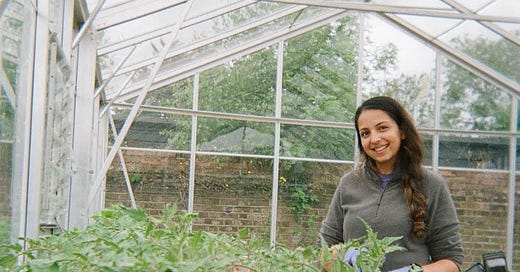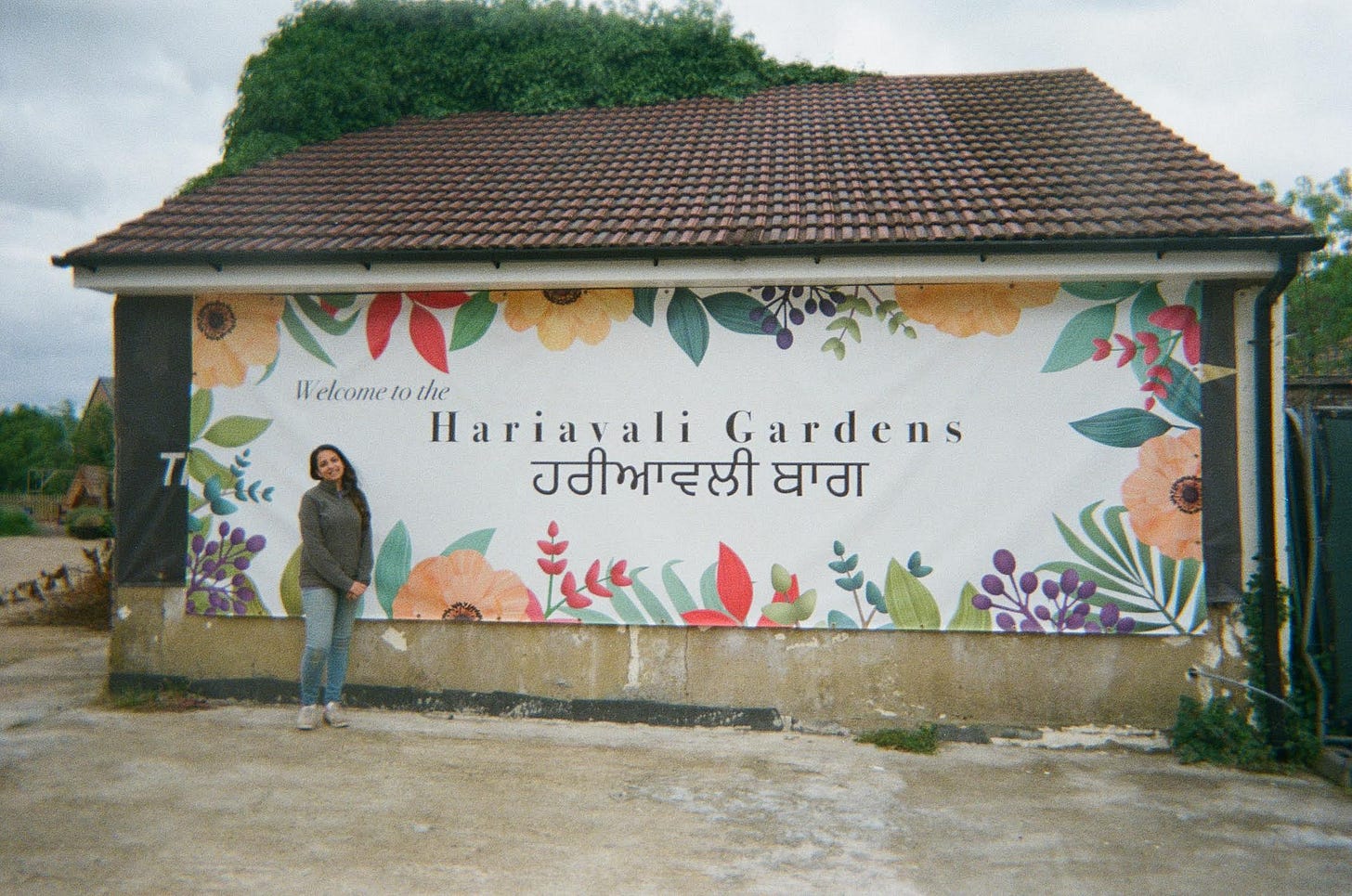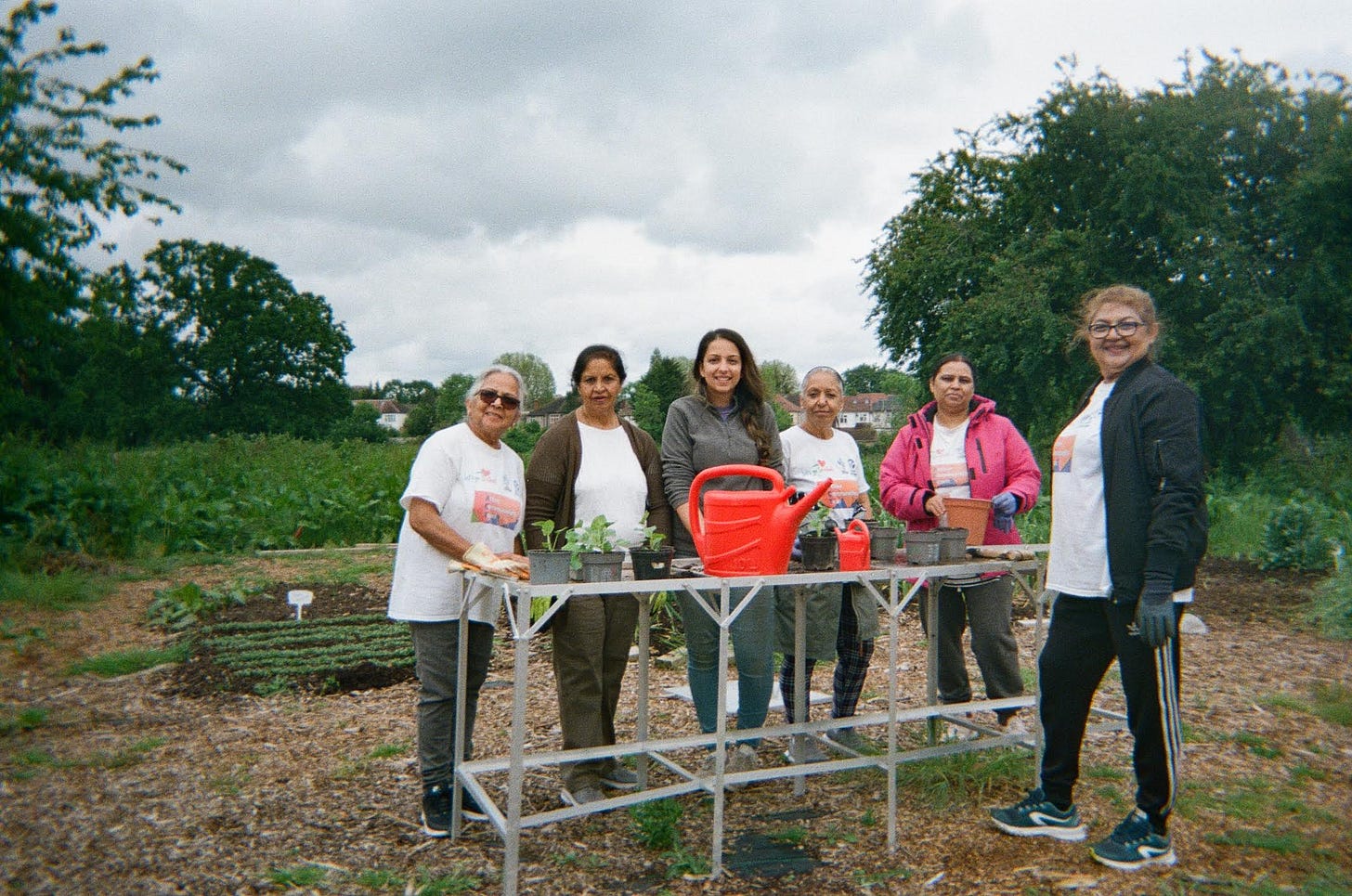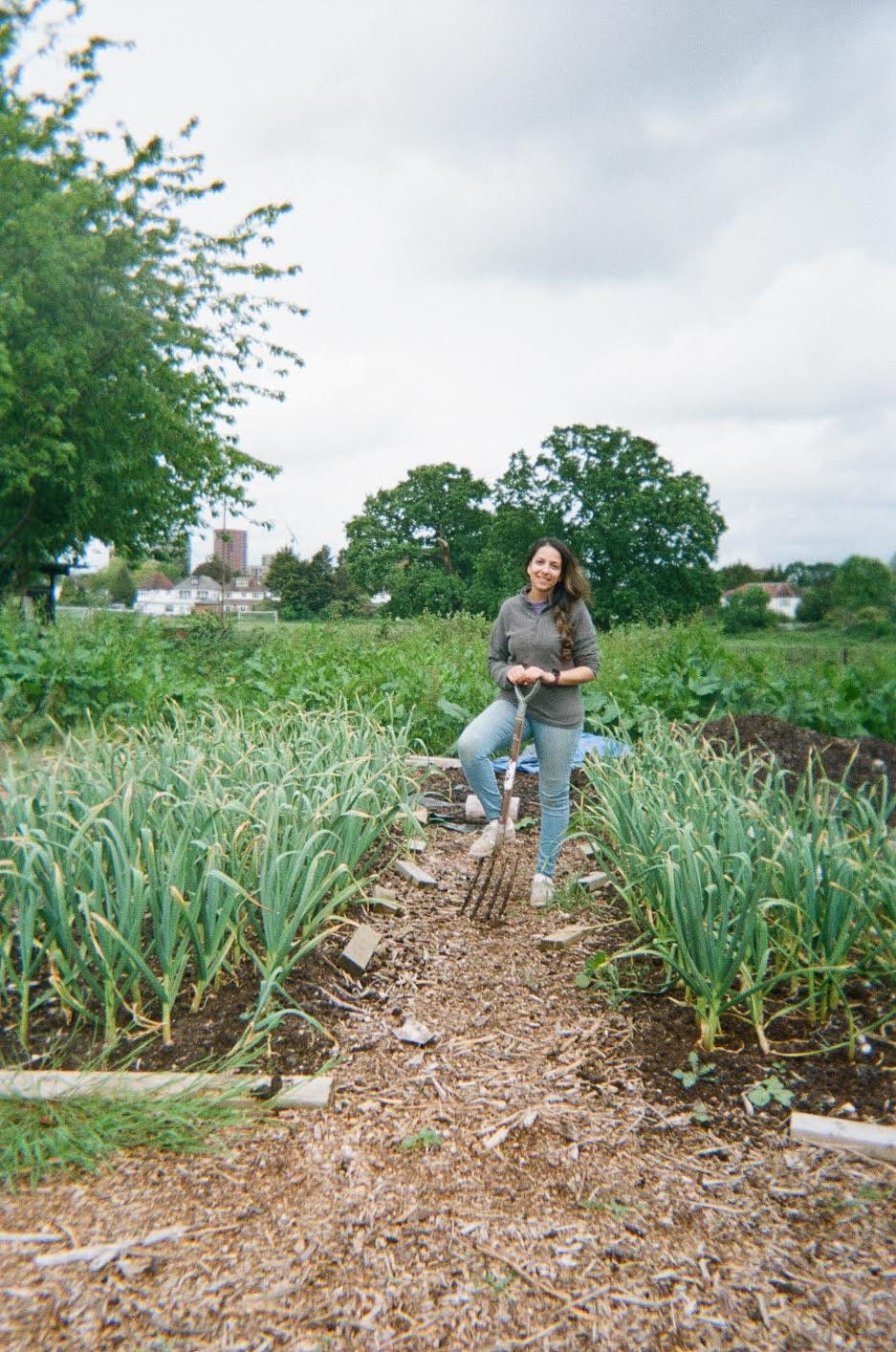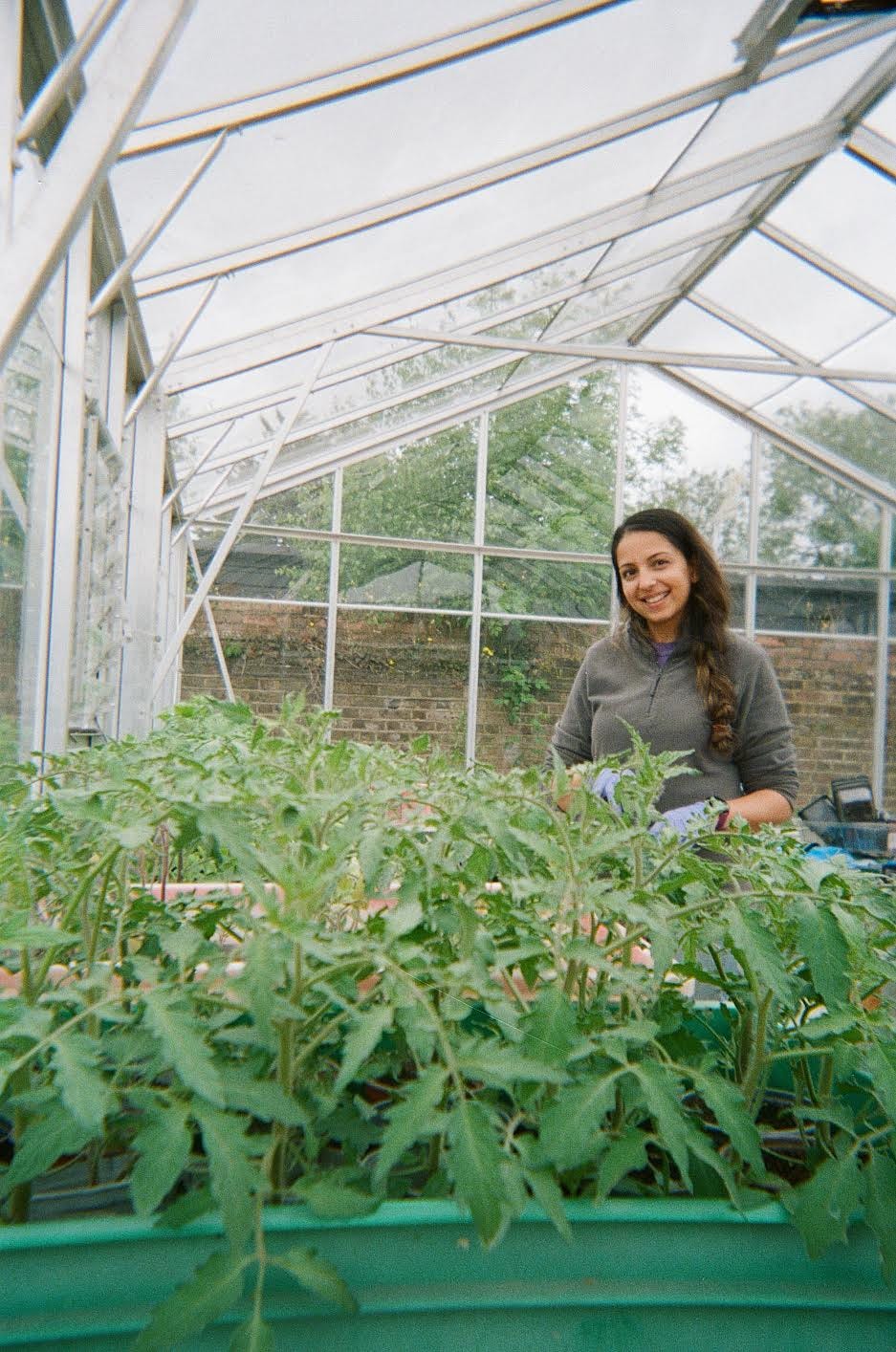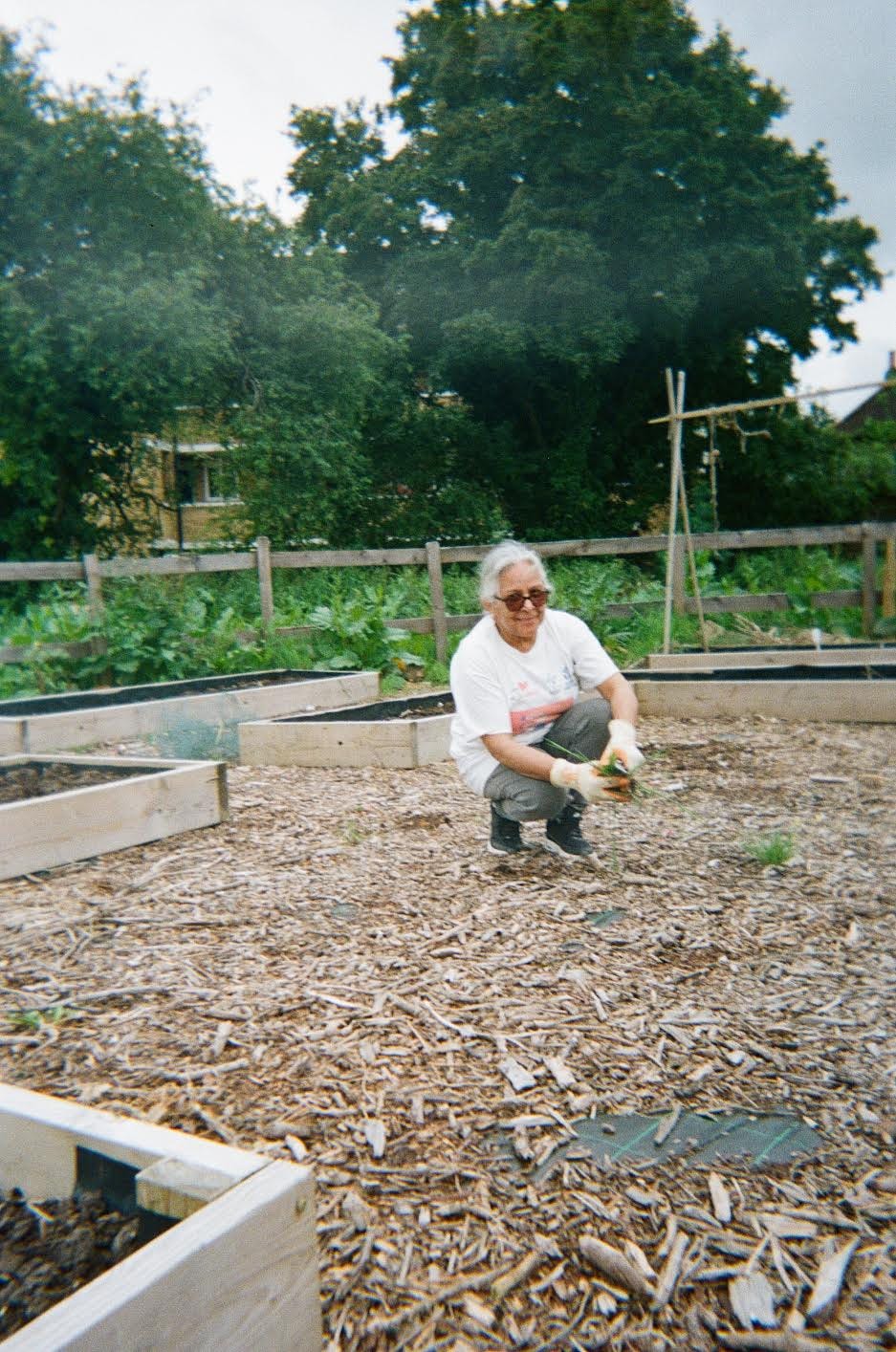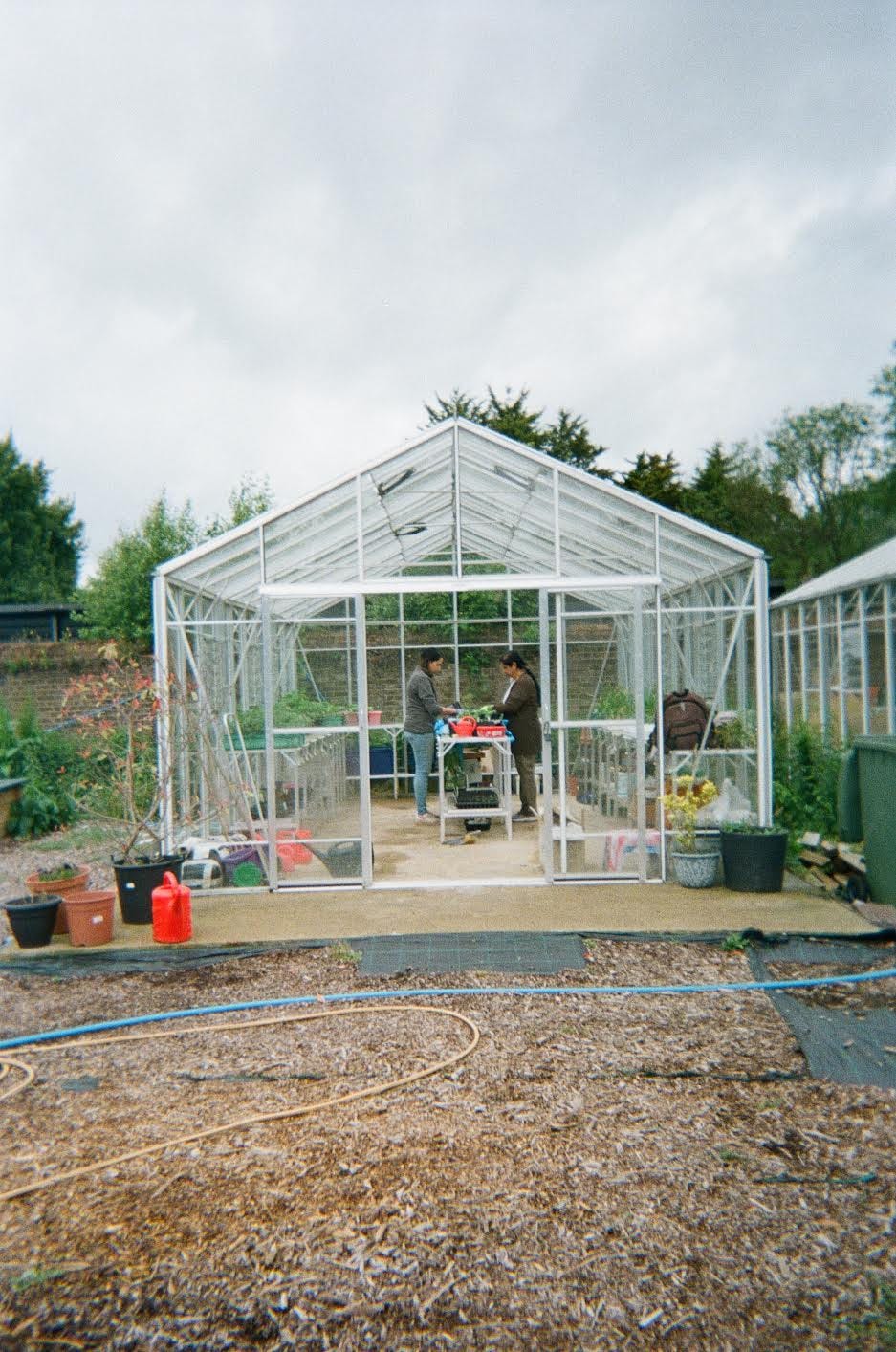West London’s very Own Grown.
Join me as I spend the day at Singh Sahba’s Hariavali Gardens with Kiran Jagdev: project manager and creative director.
The concept of ‘Own Grown’ stems from the DIY culture Kulkiran Kaur implements in all aspects of her personal and working life.
Whether it was creating a ‘den’ in her parents attic for her and her friends to enjoy as teenagers or recently curating the new ‘Professor Gurmukh Singh’ children’s Library at Guru Nanak Road Singh Sabha Gurdwara; Kulkiran realised quickly that her forte is not about the particular project she is leading on, but about creating opportunities to make spaces for community and to bring positive energy into any space she manages.
Kulkiran comes from a rich history of arts and culture in Southall and West London. Now she uses the wealth of her experience in community engagement to create gardens and allotments in Southall and beyond, supporting people to grow their own plants, flowers and food. As a part of her organisation Own Grown and through her role as Project Manager and Creative Director for the Singh Sabha Southall trust, Kulkiran manages the Hariavali Gardens at Norwood Hall in Southall.
Norwood Hall has a significant history in Southall. Built in 1801 the Sir John Soane mansion remained a residential estate through the nineteenth century. By World War Two it suffered from extensive bomb damage and was eventually bought by Middlesex County Council. It served as an old people’s home as well as a site for Southall Grammar’s playing fields. But most interestingly for Kulkiran’s story was when the site became the ‘Norwood Hall Institute of Horticultural Education’ in 1956. It provided gardening lectures, day release classes for parks department employees and young florists as well as courses for those intended to take the Royal Horticultural Society exams. The history of gardening and planting at Norwood Hall is being revived by Kulkiran and her team of volunteers at Hariavali Gardens.
I spent the day there and had the pleasure of joining Kiran’s weekly workshop with the lovely ladies from local community groups ‘ACT: active community teams’ and ‘Let’s Go Southall’. Afterwards we had a chat about DIY, gardening, growing food and why teaching others to do the same is so important to her.
‘DIY is important to me, it’s a lost tradition. If something was broken our elders would have fixed it, but now if somethings broken we replace it’. The new generation she believes has lost the art of using their hands because we’re so used to quick fixes. ‘DIY requires you to focus, follow instructions and do one thing at a time. When I make things it actually slows me down and calms my mind. In this busy and fast pace world we live in now, to me DIY and ‘doing’ or being practical is the way I gain new knowledge. In the same way people might read to gain knowledge I need to be able to touch, feel and make things in order to learn about them’.
Kulkiran has been a garden hobbyist from a young age. It was always her who kept up the family garden. She took charge of mowing the lawn, planting the bedding flowers and replenishing the bird feeders. This carried through to when she got married and started her own family. ‘I learnt a lot through trial and error, just working and planting in my garden’.
When Kulkiran was pregnant with her first child she started learning about the growing issue of food security. ‘A lot of the food we buy from supermarkets is mass produced in mono-crop culture which risks a lot of pests’ she explained. ‘Therefore these crops have to use pesticide. I became a lot more conscious of food miles too, not only are the actual crops being impacted by chemicals, the journey our food has to go on in order to reach our plates has a massive impact on our environment’. Kulkiran takes the concept of ‘you are what you eat’ one step further: ‘you are what you eat- and what that eats’.
She also explained that just one or two very big companies have bought up a lot of the agricultural land around the world. This makes her question why big corporations are so interested in having a monopoly over so much of the food we are eating? ‘When you’re pregnant you’re a lot more conscious of what you’re putting into your body. I became very self-aware of what I was eating and therefore passing on to my child, I wanted to give my child the best start in life’. Kulkiran was always into growing her own vegetables here and there but now she was thinking about how she could maximise this and take it to the next level. Then Covid hit.
‘It was a stressful time but it finally gave me the opportunity to actually invest time into growing most of my fruit and vegetables at home’. The anxiety around health consciousness was exacerbated for a lot of people during the global pandemic and for Kulkiran she took the opportunity to focus her newly found time on growing more and figuring out how to get the best yield. ‘I also seem to have a natural instinct for these things’ she explained. ‘Animals seem to like me too’. In any of the gardens she has spent a lot of time in, our small friends seem to come and watch her. From a returning mouse who comes and sits on her garden wall in Southall, to a bird who perched calmy on her shoulder on her childhood visit to India, Kulkiran very much feels at one with all that nature has to offer us. We decided that she would be dubbed the ‘Snow White of Southall’.
Hariavali Gardens adopts the ‘no dig’ theory of planting. Charles Dowding has been the innovator behind no-dig planting since the 1980s and it can be described as a way of building on-top of the soil that already exists whilst still being able to use all the nutrients the soil has to offer. Kulkiran helped to explain that ‘if we believe that our land already has a valuable ecosystem of its own, putting our big forks and spades into it would disrupt it. We want to work with the biodiversity that already exists, so we build on top of the land instead. The land at Norwood Hall was basically a dumpsite, with a lot of the rubble left over from building the primary school on the other end of the site. The no-dig method works well here, we could build on top of and work with the land that already exists, rather than try to ‘fix’ it’. Another of Kulkiran‘s farming and growing inspirations around the topic of soil health is David O’Carroll, affectionately known by the planting community as ‘Master David’ who teaches Korean Natural Farming at his farm in Devon.
Another planting method used at Hariavali gardens is Companion Planting. This is to do with planting beneficial ‘companions’ with each other, as opposed to planting the same crops too close to one another which is what is done in mono-crop culture. It’s about creating as much biodiversity in your patch as possible. Companion Planting has four main benefits: 1. It attracts beneficial insects who in turn become pollinators 2. It deters pests 3. It attracts predators for said pests and 4. It can accommodate ‘sacrificial’ crops which are fine to be eaten by pests such as caterpillars or aphids, in turn keeping them away from your precious veggies. ‘I’m an advocate for this type of planting because we are growing in small urban spaces and we need to be able to maximise the space we have. Also, it’s a non-chemical organic form of pest control’.
Working with Singh Sabha Southall she often gets a lot of questions about whether she would be using Hariavali Gardens to grow food for the Langar. ‘The space at Hariavali is intended as a resource base. Where I can grow a variety of produce rather than a bulk of just one. That way I can use the space to teach others how to set up their own gardens in their backyards and grow their own food for their families’. The garden is a part of Singh Sabha’s ‘green project’. ‘It shows they are making conscious decisions around being eco-friendly and self-sustaining’ she said. ‘The garden is definitely by the sangat, for the sangat’. Future initiatives managed by Kulkiran through the Singh Sabha Southall trust will include a series of cooking classes, photography workshops, summer kid’s camps, group outings and many more exciting things for our local community to get stuck into!
Passing on her knowledge to the Sangat at Norwood Hall is clearly very important to Kiran. She has created a space where community members can contribute to the growth of the gardens and learn how to build their own. Before swindling a lift back to the station I asked her what ‘community’ means to her. ‘Community for me is about building my village, and since I had kids this became more and more important. They say it takes a village to raise a child but it wasn’t until I had my second child that I really knew what that meant. So I’m not just building a support system for myself, but for my kids too’. ‘In that case’ I said cheekily, ‘could you drop this village resident off to Southall station please?’

